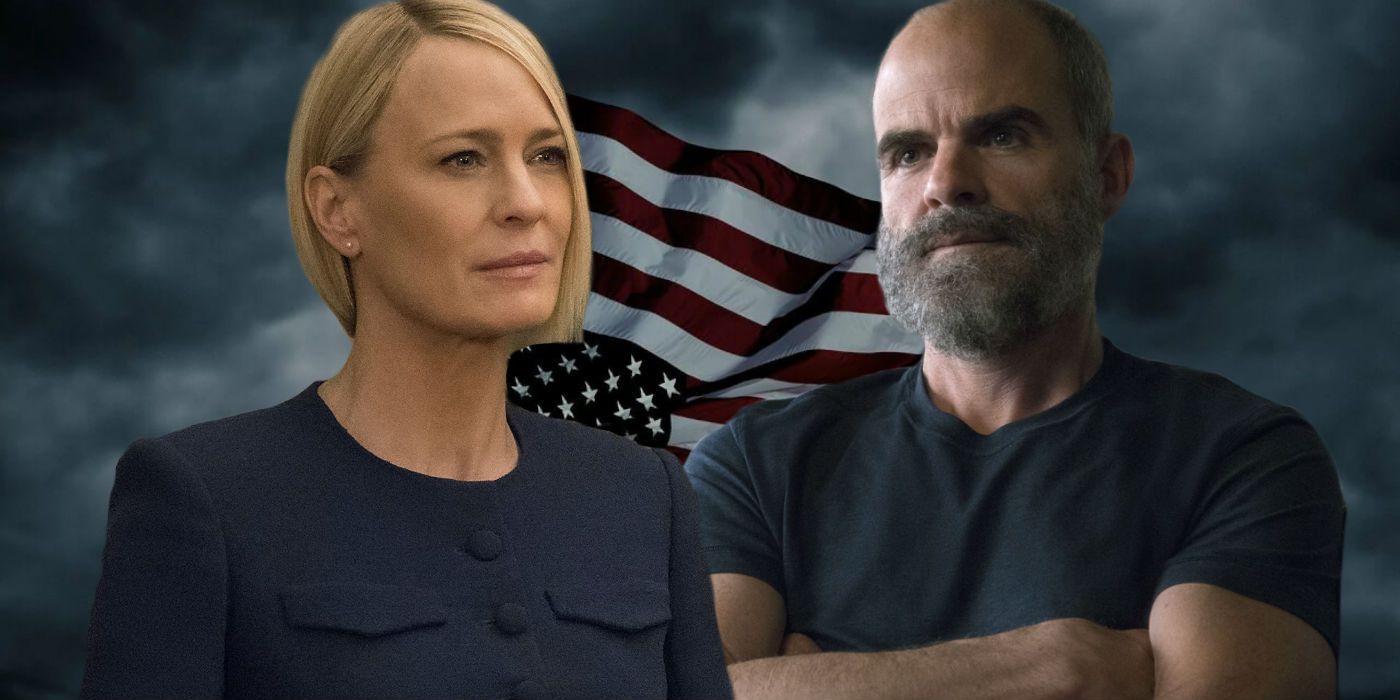
The sixth and final season of House of Cards sees Claire Hale's presidency under siege as her dark secrets threaten to bubble to the surface, and things gradually build towards a violent showdown with Doug Stamper. This season also contains an interesting twist with regards to Frank Underwood's frequent asides to the audience - which, as it turns out, where actually excerpts from an audio diary that Frank kept.
In season 6, Claire is as ruthless a ruler as her husband, and equally skilled at putting on a more innocent facade. Whereas Frank gave a convincing public performance as just a good ol' boy from Gaffney, Claire feigns everything from total incompetence to open-hearted transparency to get what she wants, while in the dark she adds a few more bodies to the pile. One body that has her confounded, however, is that of her own late husband. After declaring his intention to kill Claire in the season 5 finale, it's Frank himself who winds up dead in his bed in the White House - apparently as the result of accidentally overdosing on his liver medication.
Related: How Frank Underwood Died In House of Cards Season 6
House of Cards season 6 has woven a tangled web by its end, with the long-simmering distrust between Doug and Claire finally boiling over, and Claire going to unprecedented lengths in an effort to protect her position as President. Here, we'll break down the major points of the House of Cards series finale, and try to understand what the series as a whole has to say about the nature of power in politics.
- This Page: What Happens At The End of House of Cards
- Page 2: Why Claire Will Get Away With Doug's Murder
- Page 3: What House of Cards' Diary Twist and Ending Mean
What Happened At The End Of House of Cards
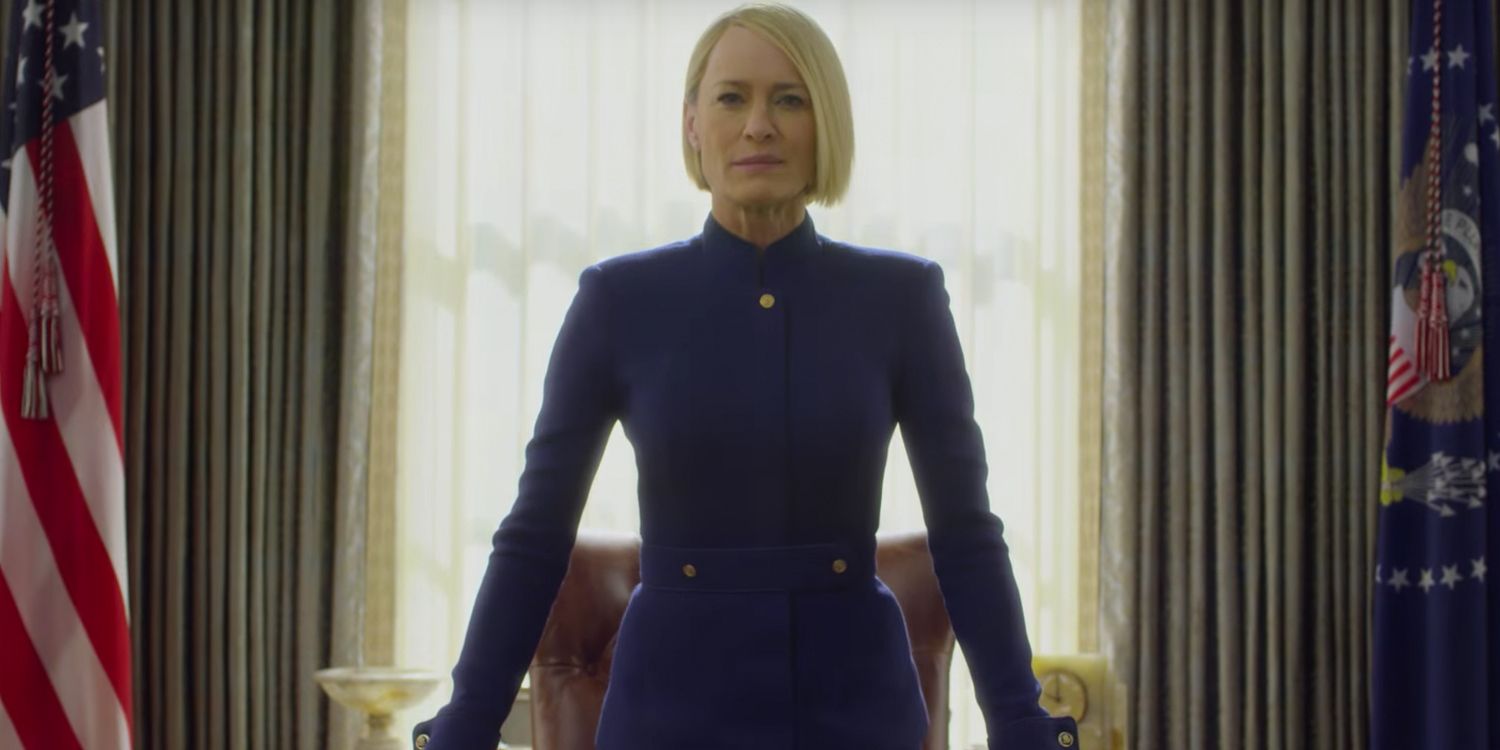
In the episodes leading up to the end of House of Cards, Claire uses a move that Frank never could have: she announces that she's pregnant. It's unclear whether the baby is really Frank's (as she tells the nation) or whether it's actually Tom Yates' baby (Claire says it's a "50-50" chance). Regardless, Claire goes from the verge of impeachment to being a beloved figure in the nation - but Doug Stamper threatens to bring all of that crashing down when he starts leaking excerpts from Frank's audio diary to journalist Janine Skorsky.
Claire responds by effectively throwing her late husband under the bus, holding a press conference at the start of the series finale in which she promises to investigate Frank's crimes and, if necessary, issue a posthumous indictment. Realizing that this isn't enough to take the heat off her, however, Claire does what she and Frank did the last time they got close to defeat: she manufactures a crisis. Claiming that ICO terrorists are attempting to acquire a nuclear bomb, she instigates a scuffle between U.S. and Russian troops, antagonizing Viktor Petrov. She then holds another press conference - this time announcing that she is prepared to launch a pre-emptive nuclear strike.
Infuriated and outmaneuvered, Annette Shepherd plots with Doug Stamper, making a deal that she will move Frank's body to his preferred resting place and arrange for Doug to be given a lenient sentence if he can reach the Oval Office and personally assassinate Claire. Meanwhile, Claire steps things up by ordering a military aide to bring the nuclear football - a briefcase used to authorize a nuclear strike. The man who brings her the briefcase is Colonel Flora, and Claire correctly guesses that he was one of the people in on the plot to assassinate her. She has him arrested, then returns to the Oval Office to find a gift from Doug: the only copy of Frank's audio diary, and the letter opener that Frank gifted to Doug before he died.
Related: House of Cards Season 6: New Cast & Character Recap Guide
In the final scene of this episode, this season, and the series itself, Doug confronts Claire in the Oval Office, and Claire asks to be left alone with him. Doug gives her a full list of the assassination co-conspirators. After a tense conversation, Claire pushes Doug to admit that he killed Frank using his liver medication. An emotional Doug demands to hear Claire say that Frank made her what she is, and when she refuses he grabs the letter opener Frank gave him and holds it to her throat, drawing blood. He falters, sobbing and apologizing, and Claire uses the opportunity to stab him in with the letter opener. He falls to the ground, and Claire holds him and then smothers him with her hand until she's sure that he's dead - thereby destroying the last person who knows all of her dirty secrets.
Why Doug Stamper Killed Frank Underwood
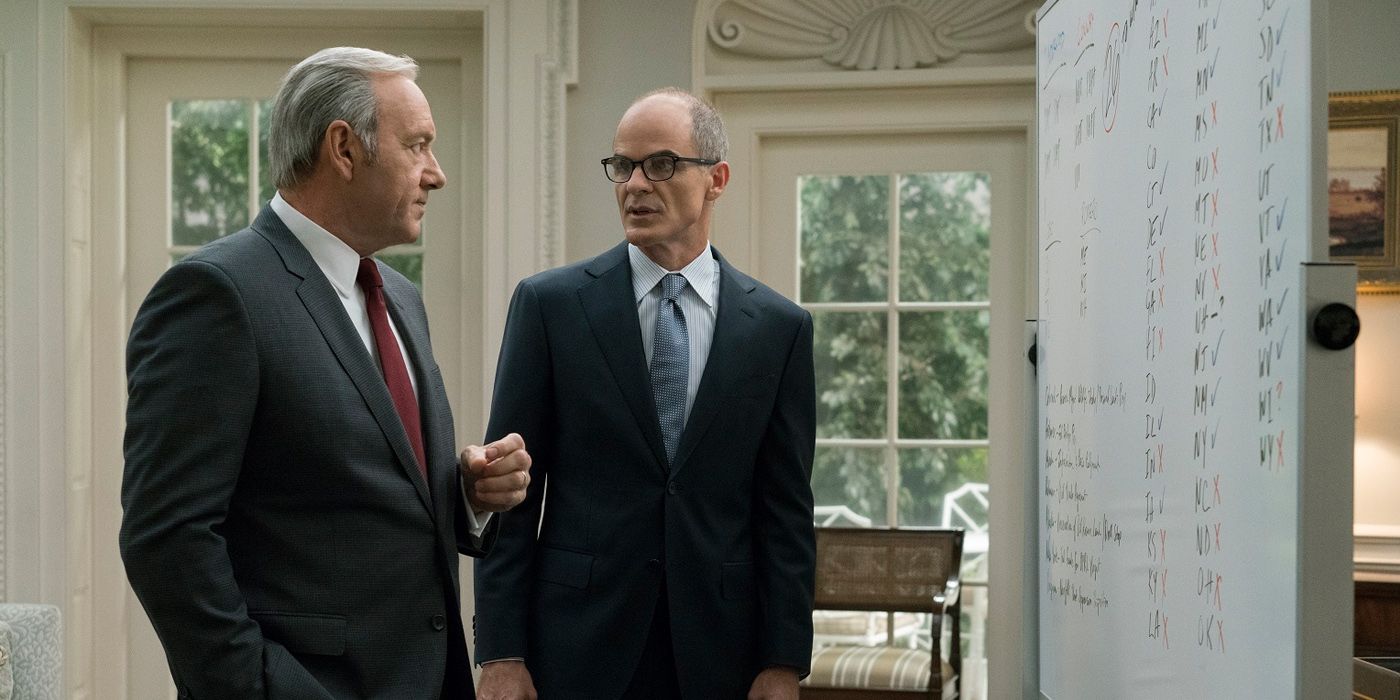
One of the most surprising reveals of the finale was that Doug Stamper - a man so devoted to Frank that he continued to fight for him even after his death - was actually responsible for killing him. However, it makes sense in light of Doug's character arc this season; with Frank gone, Doug is determined to protect his legacy as a great man, and get revenge on Claire for inadvertently causing his death. After the season 5 finale, in which Frank swore that he would kill Claire if she didn't pardon him, Doug saw that Frank was about to go to the White House and carry out his threat. In desperation, Doug secretly gave Frank an extra dose of his liver medication, knowing that it would kill him, but also stop him from killing his wife and going down in history as a murderer.
Why Claire Killed Doug
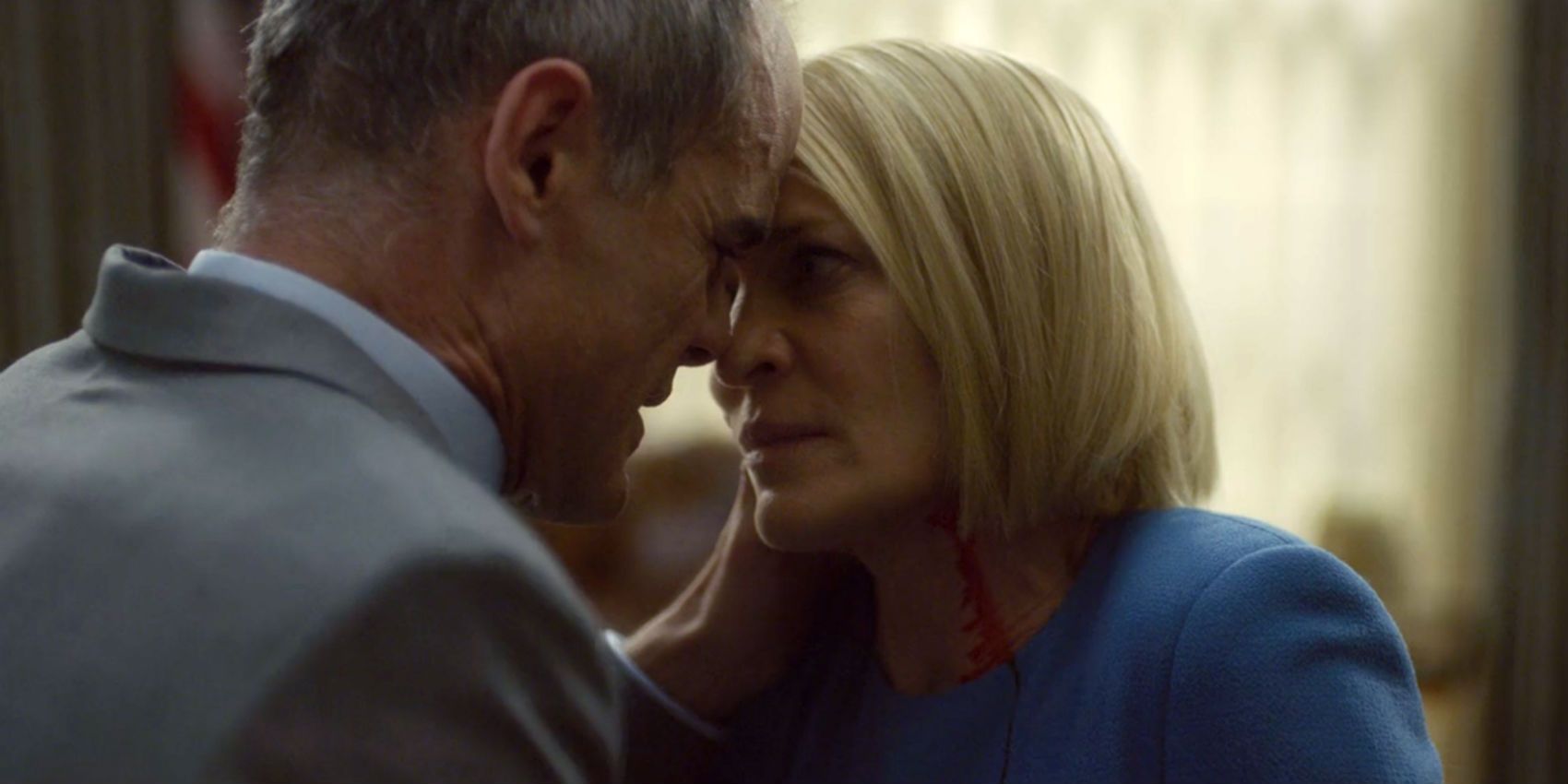
Doug Stamper is literally the man who knows where the bodies are buried. He worked with Frank for twenty years and carried out some of his most nefarious and criminal schemes, and in one of his final acts Frank changed his will, leaving everything to Doug. He also left a USB drive containing his audio diary, knowing that Doug could use it as a weapon to destroy Claire. After Claire has Jane Davis, Cathy Durant and Tom Hammerschmidt killed, she knows that Doug is the last remaining link between her and all of the terrible deeds of the Underwood administration. Doug is a threat, and so he has to die.
Page 2 of 3: Why Claire Will Get Away With Doug's Murder
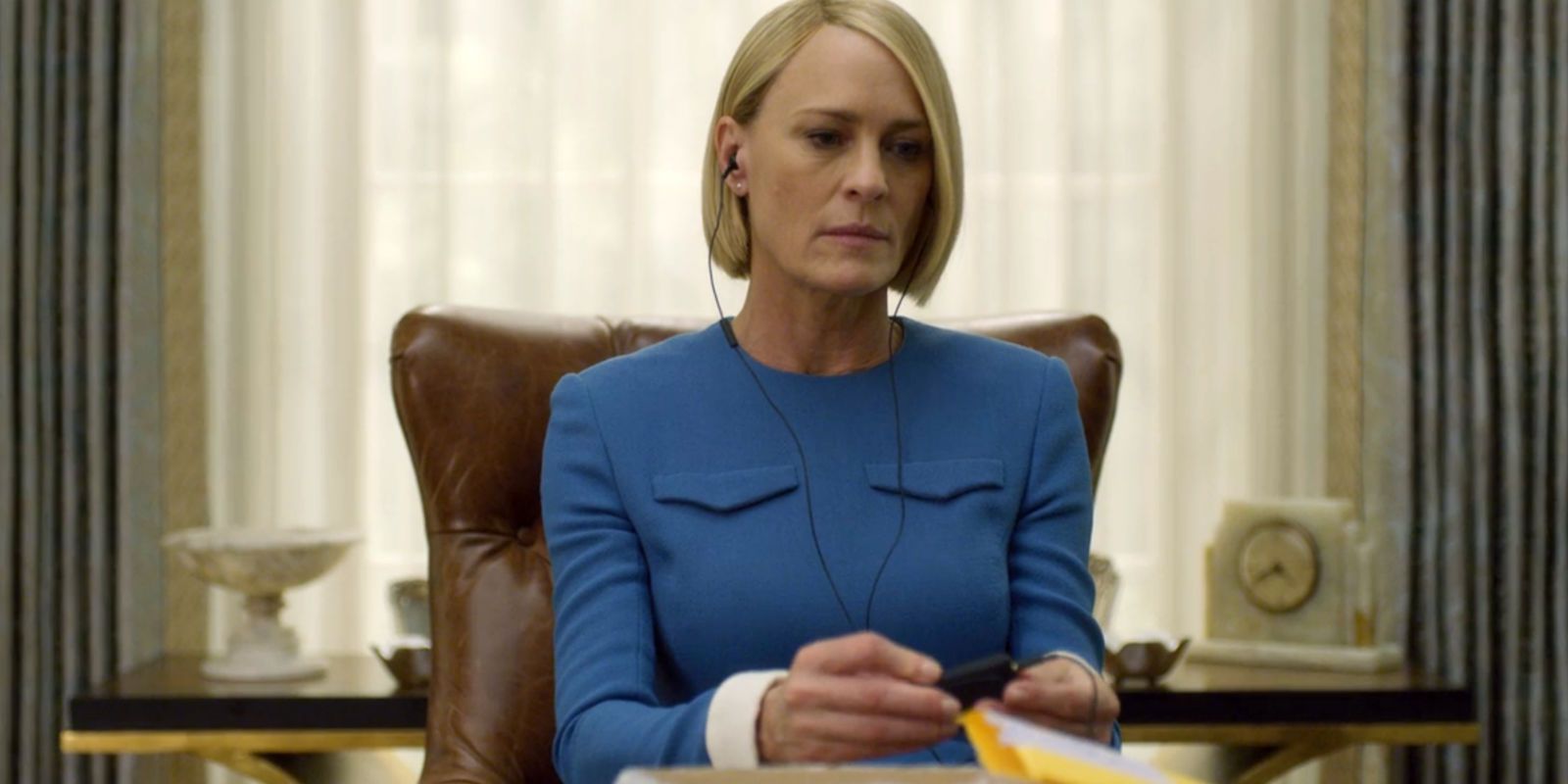
Why Claire Will Get Away With Doug's Murder
Murdering a man in the Oval Office might be the most brazen crime either Frank or Claire has ever committed - and yet it's pretty clear that she's going to get away with it. Colonel Flora is already in custody, and after entering her office Doug handed Claire a list of all the assassination co-conspirators, which she can use to take down her enemies - Annette Shepherd included. Claire deliberately left the letter opener on the desk and then pushed the distraught Doug to the edge (a dangerous gambit, to be sure, but one that paid off). The wound on her neck is proof that Doug was there to kill her, so she can simply say that she stabbed him in self-defense. It's the silence of a dead man who was believed to be mentally unstable and had already been previously charged with murder against the word of the President of the United States, and a pregnant woman no less.
Claire is also now in possession of Frank's audio diary (which Doug would never entrust to anyone else, because he knows that some of its contents could destroy Frank's name), so all her other secrets will remain hidden as well. She's won... for now.
Related: How Kevin Spacey's Firing Changed House of Cards' Final Season
Will Claire Still Launch A Nuclear Strike?
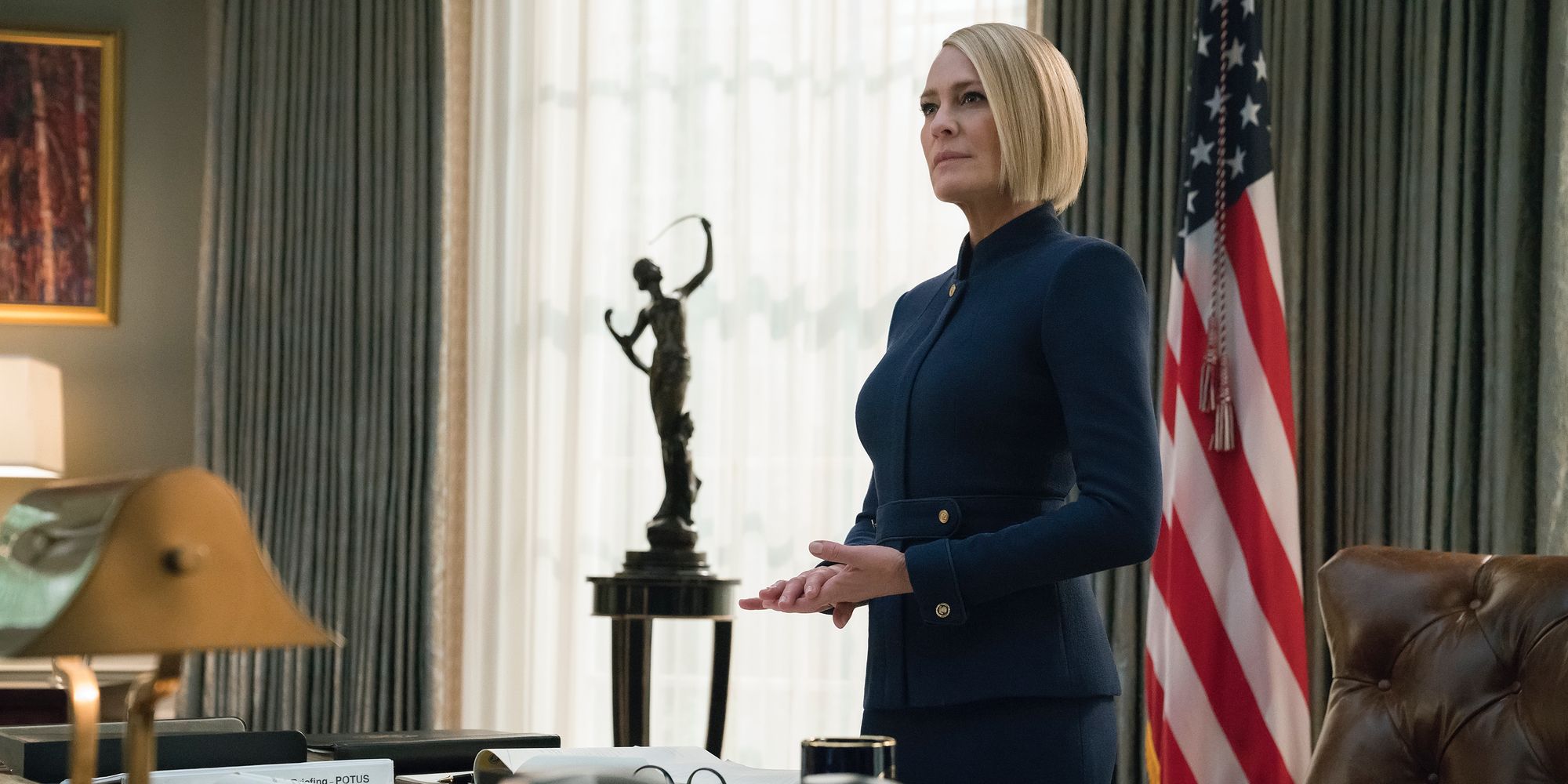
With Doug dead and the threat of what he knows (as well as the threat of Frank's audio diary) gone, Claire no longer really needs the distraction of the nuclear crisis. In an aside earlier in the episode, she admitted that she really didn't want to have to go down the route of a nuclear attack, so it's likely that she would back down from the threatened strike on Syria - perhaps revealing that the ICO terrorist leader is dead, and even making moves to heal the relationship between the U.S. and Russia. Open war has never been Claire's goal, and it's not hard to imagine that she would find a way to stop the current situation from snowballing.
Of course, that's little comfort now that we know just how far Claire is prepared to go in order to protect herself. Even if she doesn't launch a nuclear strike this time, a situation could arise in the future where she pulls the same move - and follows through on it. Doug Stamper has handed her the evidence she needs to take out her biggest political enemies, which may keep Claire safe for a while, but we wouldn't put it past her to initiate a nuclear war if pushed to the edge again.
Who Is The Father of Claire's Baby?
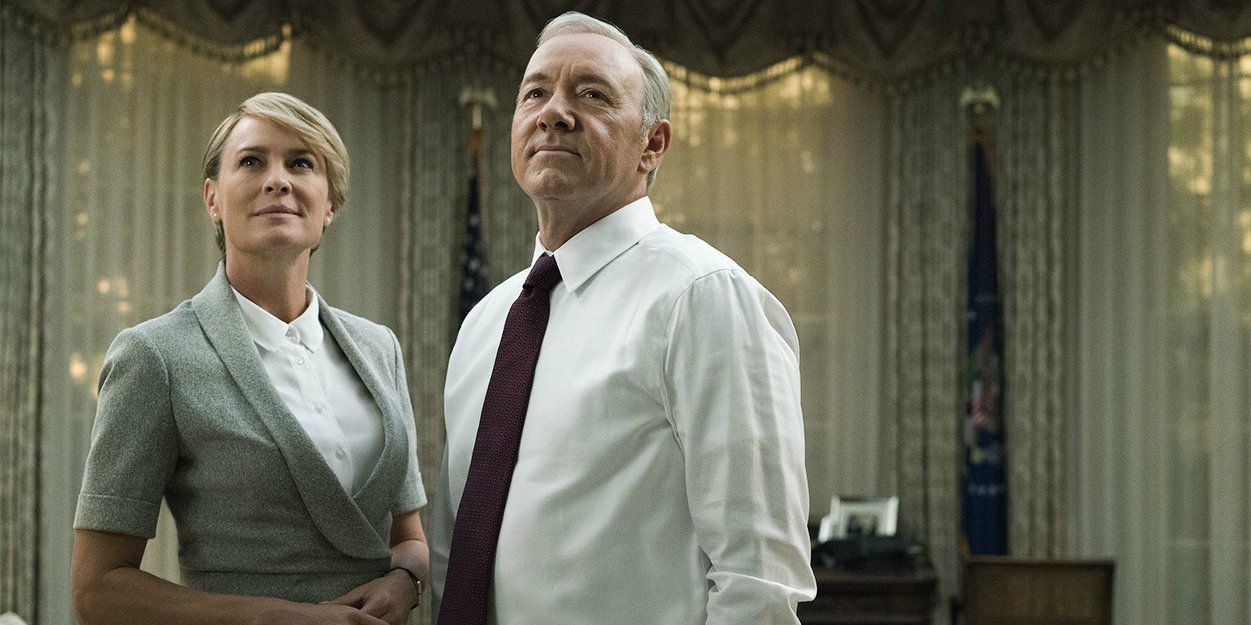
As far as America is concerned, the widowed President Hale is carrying her late husband's baby... but the audience knows that things aren't quite that simple. In a conversation with her younger self, Claire suggests that there's a "50-50 chance" that she's carrying a "demon seed," which strongly implies that she doesn't know whether it's Frank's baby or Tom Yates' baby. Claire definitely seemed to be more sexually active with Tom in season 5 than with her husband, but that doesn't completely preclude the possibility of the baby being Frank's. With this being the series finale, it seems that this particular question will be left unanswered.
Page 3 of 3: What House of Cards' Diary Twist and Ending Mean
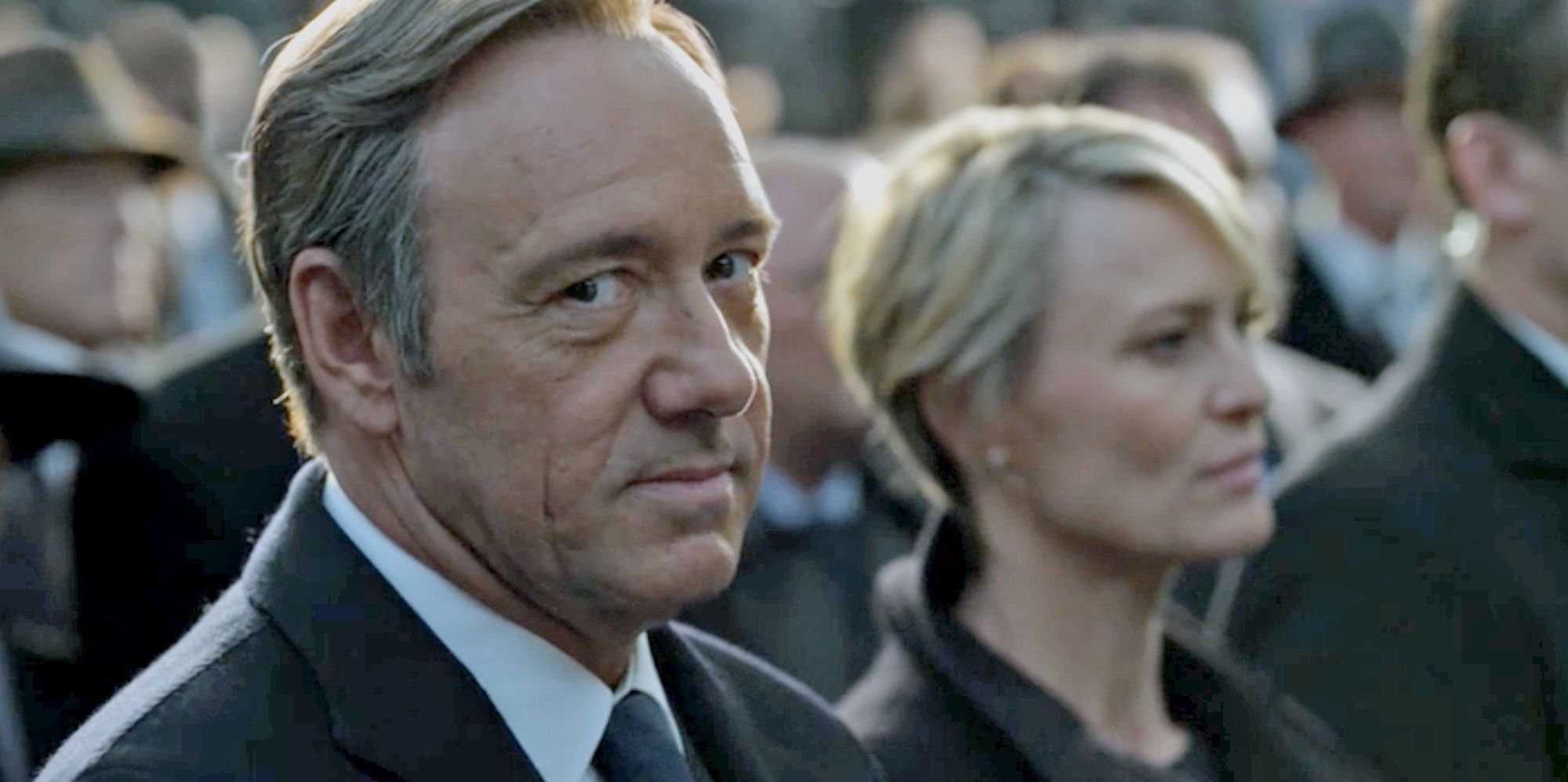
What Frank's (And Claire's) Asides Really Mean
Perhaps the biggest twist of House of Cards season 6 is the reveal that Frank Underwood's many asides to the audience were seemingly excerpts from a secret audio diary that he kept throughout the show. It's perhaps a little far-fetched that Frank would leave record a villain monologue of all his terrible acts (which, if found, could ruin him), but it's significant that he trusted Doug's loyalty so much that he would bequeath it to his right-hand man in death.
Of course, this raises the question of whether Claire breaking the fourth wall also means that she kept an audio diary, and that Doug's own asides to the camera were an indication that he kept a record of his thoughts as well. However, this twist probably isn't meant to be interpreted quite so literally. It stands to reason that Frank would use an audio diary to record his most private thoughts and musings, and he shared those same thoughts and musings with the audience.
Related: Disgraced House of Cards Star Kevin Spacey Sued for Sexual Battery
What House of Cards Says About Power & America
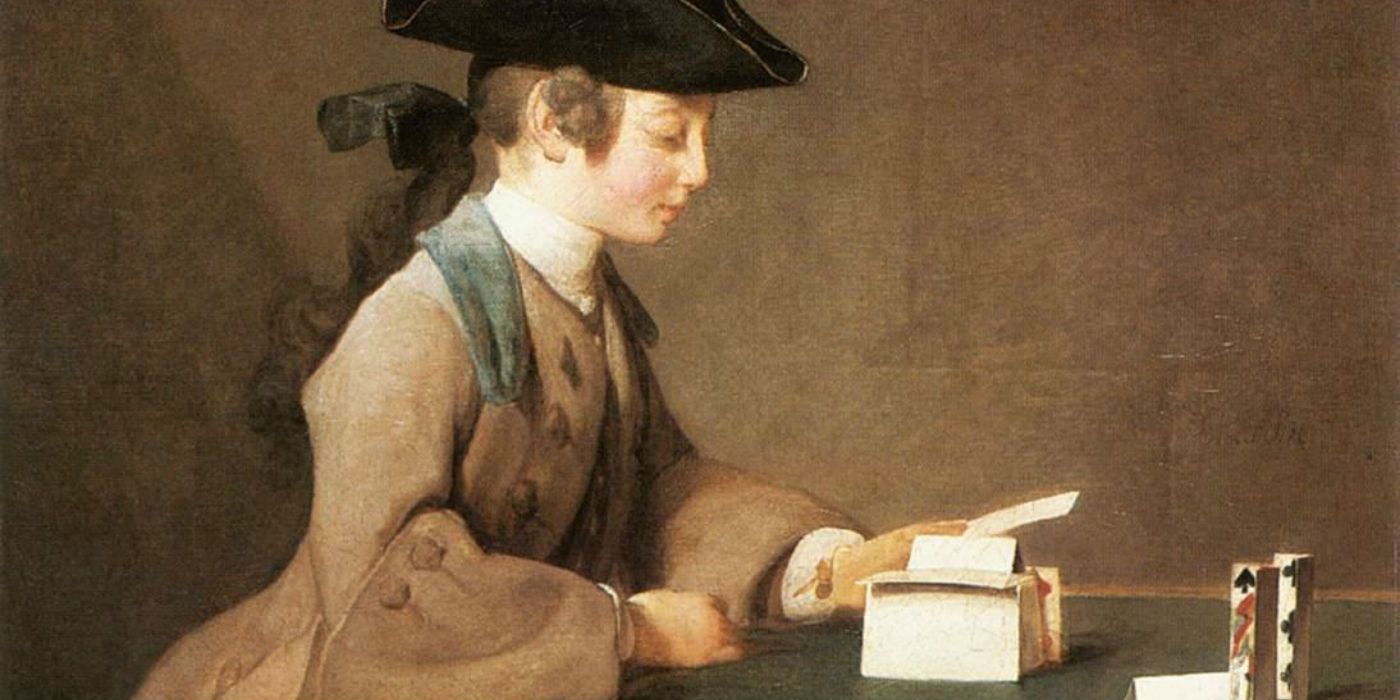
While some might believe that House of Cards is about American government being under attack by an unprecedented level of deviousness, corruption, and evil, the lingering message of the show - and season 6 in particular - is that what Frank and Claire did isn't really out of the ordinary. There's no indication that America is spinning towards open fascism, since that wouldn't really be Claire's style. The show is really about a more insidious form of tyranny, which is more difficult to pull off, but also more difficult to expose and defeat.
In a particularly telling scene in the final episode, Mark Usher goes to visit Bill Shepherd at his countryside home. Though he started out the season as a formidable antagonist, Bill is left weakened by his deteriorating health and has become a sideshow feature on news programs - raving against Claire, and being taken seriously by no one. Mark tells Bill that his own sister, Annette, is preparing to oppose him and presumably take Claire's side in the public eye. Bill asks Mark where he thinks the country will be in ten years, perhaps imagining some kind of apocalyptic scenario, but Mark has a more measured response. "Things don't really change, Bill," he says. "They just fade away."
A later scene with Bill Shepherd continues this thought, as Bill is going through a series of paintings from various points in history and countries around the world - including Harry Brooker and William Hogarth. It's here that the show's title gets name-dropped, with Bill looking at Jean-Baptiste-Siméon Chardin's painting The House of Cards. Bill says that all of these paintings, "have one thing in common: children watching, waiting for the cards to fall." It's a summary of the show's attitude towards power as something fragile, that can be brought tumbling down by the smallest mistake. Frank Underwood saw his own downfall coming, but ultimately couldn't do anything to stop it, and it seems as though Claire's own reign is ultimately doomed to be fall as well, since keeping the house of cards together means constantly playing a near-impossible game.
More: Read Our House of Cards Season 6 Review
from ScreenRant - Feed https://ift.tt/2JCiK5f

0 Comments